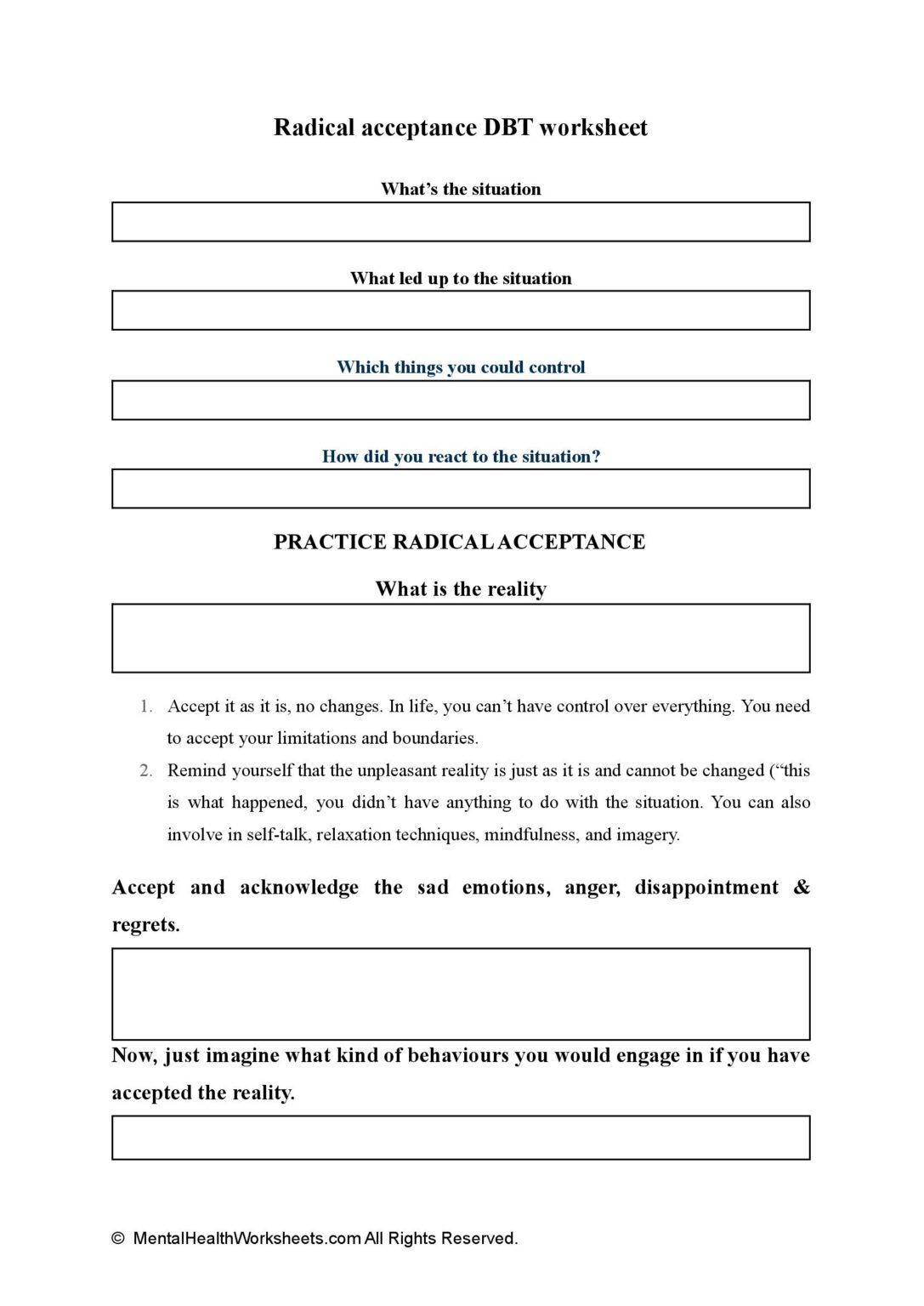How To Promote Mental Health Acceptance In Your Community: 5 Practical Steps

Table of Contents
Raise Awareness Through Education
Education is the cornerstone of dismantling the stigma surrounding mental health. By providing accurate information and fostering open dialogue, we can create a more compassionate and understanding environment.
Organize Workshops and Seminars
Workshops and seminars offer a powerful platform to educate your community about various mental health conditions. These events provide a safe space for learning and can significantly contribute to stigma reduction.
- Workshop Topics: Consider covering common conditions like depression, anxiety, stress management, and post-traumatic stress disorder (PTSD). You can also incorporate workshops on coping mechanisms, mindfulness techniques, and self-care strategies.
- Collaborators: Partner with local mental health professionals, support groups, and community organizations to leverage their expertise and reach a wider audience. Involving individuals with lived experience can add powerful personal perspectives.
- Advertising: Promote your events through various channels – local newspapers, community bulletin boards, social media, and collaborations with local businesses. Utilizing eye-catching visuals and clear, concise messaging is crucial for attracting attendees. Make sure to highlight the benefits of attending, such as learning practical coping strategies and connecting with others.
Utilize Social Media Campaigns
Social media offers a powerful tool for amplifying mental health awareness messages and reaching a broader audience. Creative campaigns can spark conversations and connect individuals with vital resources.
- Engaging Content: Develop visually appealing infographics, short videos, and personal stories (with consent) that resonate with your community. Keep your messaging concise, positive, and action-oriented.
- Relevant Hashtags: Utilize relevant hashtags such as #mentalhealth, #mentalhealthawareness, #mentalwellness, #communitysupport, and #endthestigma to increase visibility and reach a wider audience.
- Influencer Collaboration: Partnering with local influencers or community leaders can help broaden your reach and engagement.
Create Supportive Networks and Resources
Building a strong network of support is crucial for those struggling with mental health challenges. This involves creating accessible resources and safe spaces where individuals can connect and find help.
Establish Support Groups
Support groups provide invaluable peer-to-peer support and a sense of community for individuals facing similar experiences. These safe spaces encourage open sharing and reduce feelings of isolation.
- Types of Support Groups: Consider offering different types of support groups, such as peer-led groups, professionally facilitated groups, and groups catering to specific conditions or demographics (e.g., a group for young adults with anxiety).
- Location and Accessibility: Ensure the group meets in a comfortable, accessible location and consider offering virtual options for greater inclusivity.
- Inclusivity and Confidentiality: Prioritize creating an inclusive and confidential environment where participants feel safe to share their experiences without judgment.
Partner with Local Organizations
Collaborating with local organizations expands your reach and resources, creating a more comprehensive support system within your community.
- Partnerships: Explore partnerships with schools, workplaces, community centers, libraries, and religious institutions to offer mental health screenings, employee assistance programs, and community outreach initiatives.
- Benefits of Collaboration: Combining resources and expertise allows for a more coordinated and effective approach to promoting mental health acceptance and providing essential services.
Promote Open and Honest Conversations
Normalizing conversations about mental health is vital in reducing stigma and encouraging help-seeking behavior. Creating a culture of open communication empowers individuals to seek support without shame.
Encourage Open Dialogue
Starting conversations about mental health can feel daunting, but even small steps can make a significant difference.
- Conversation Starters: Practice initiating conversations in various settings – family dinners, workplace meetings, social gatherings. Simple questions like, "How are you really doing?" can open doors to deeper conversations.
- Empathetic Listening: When someone shares their experiences, listen actively and empathetically without judgment. Show genuine care and offer support rather than offering unsolicited advice.
Share Personal Stories (with Consent)
Personal narratives can be incredibly powerful in fostering empathy and understanding. Sharing experiences (with informed consent) humanizes mental health challenges and builds connections.
- Obtain Consent: Always obtain explicit consent before sharing someone's story, ensuring their privacy and comfort level are respected.
- Safe Space: Create a safe and supportive space for sharing personal stories, ensuring respect and sensitivity.
Advocate for Policy Changes
Systemic change is crucial for promoting widespread mental health acceptance. Advocating for policies that support mental health can create lasting positive impact.
Support Mental Health Legislation
Contact your local representatives to voice your support for legislation that increases funding for mental health services, improves access to care, and enacts anti-discrimination laws.
- Policy Examples: Advocate for policies that expand access to affordable mental healthcare, support research into mental illness, and promote mental health education in schools.
- Advocacy Groups: Join or support advocacy groups working to improve mental health policies and services in your community and beyond.
Promote Mental Health in the Workplace
Creating a supportive work environment where employees feel comfortable prioritizing their mental well-being is crucial.
- Workplace Initiatives: Advocate for initiatives like mental health days, flexible work arrangements, employee assistance programs (EAPs), and mental health training for managers.
- Supportive Culture: Foster a workplace culture that values open communication, empathy, and prioritizes employee well-being.
Celebrate Mental Health Awareness Month and Other Events
Participating in awareness campaigns and supporting mental health charities amplifies your efforts and creates a stronger community impact.
Participate in Awareness Campaigns
Utilize designated awareness months (like Mental Health Awareness Month in May) and days to raise awareness and engage your community.
- Campaign Participation: Organize or participate in events, volunteer at local mental health organizations, donate to relevant charities, and spread awareness on social media using relevant hashtags.
Support Mental Health Charities
Supporting organizations that provide services and advocacy strengthens the community's ability to address mental health challenges.
- Ways to Support: Donate to local and national mental health charities, volunteer your time, participate in fundraising events, and spread awareness of their work.
Conclusion
Promoting mental health acceptance requires a multifaceted approach. By raising awareness through education, creating supportive networks, promoting open conversations, advocating for policy changes, and actively participating in awareness campaigns, we can create a more compassionate and understanding community. Start promoting mental health acceptance today by implementing at least one of these strategies in your community. Together, we can create a more supportive and understanding environment for everyone, fostering better mental health for all.

Featured Posts
-
 Players Unhappy Fortnites Latest Shop Update Receives Negative Feedback
May 03, 2025
Players Unhappy Fortnites Latest Shop Update Receives Negative Feedback
May 03, 2025 -
 6aus49 Ergebnisse Lottozahlen Vom 19 April 2025
May 03, 2025
6aus49 Ergebnisse Lottozahlen Vom 19 April 2025
May 03, 2025 -
 Google Search Facing Extinction Sundar Pichais Doj Antitrust Concerns
May 03, 2025
Google Search Facing Extinction Sundar Pichais Doj Antitrust Concerns
May 03, 2025 -
 Trump Et Macron Au Vatican Analyse D Une Rencontre Tendue
May 03, 2025
Trump Et Macron Au Vatican Analyse D Une Rencontre Tendue
May 03, 2025 -
 Secure Your Free Cowboy Bebop Items Fortnites Limited Time Event
May 03, 2025
Secure Your Free Cowboy Bebop Items Fortnites Limited Time Event
May 03, 2025
